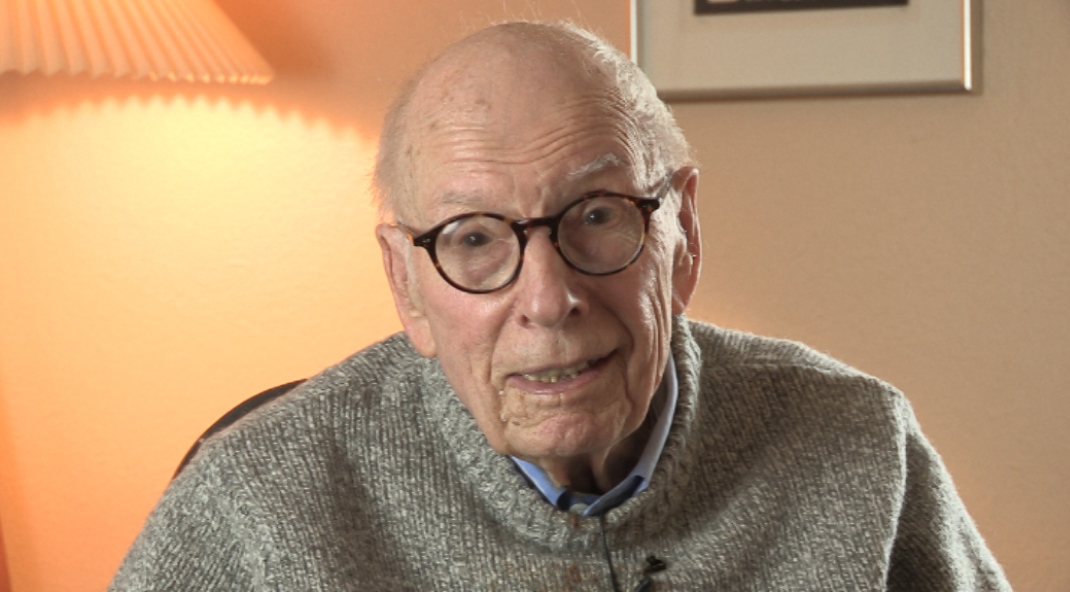NEXT STORY

Why I don’t speak German
RELATED STORIES

NEXT STORY

Why I don’t speak German
RELATED STORIES


|
Views | Duration | |
|---|---|---|---|
| 1. Remembering my father | 239 | 02:00 | |
| 2. Frustrated ambition | 103 | 01:50 | |
| 3. Why I don’t speak German | 133 | 04:13 | |
| 4. From ornithology to biology | 89 | 03:33 | |
| 5. A nightingale’s song | 76 | 01:23 | |
| 6. Conflict in the classroom | 109 | 01:34 | |
| 7. My distinguished friends | 94 | 02:07 | |
| 8. Julian Huxley’s ‘heresy’ | 91 | 00:48 | |
| 9. Bringing biology to Exeter Academy | 67 | 03:23 | |
| 10. The most successful exam I’ve ever had | 95 | 00:58 |

What my father wanted to do was to sing because he had a nice, tenor voice. And so he proceeded to pester my grandfather to send him to a place where he could learn. And this was ridiculous, as far as my grandfather was concerned. My grandfather - I never met him; he died when I was two - but I've always thought that he must have been just like the father in Clarence Day's biography.
He wanted to be an opera singer. And so he boiled about this for a while, not getting anywhere and suddenly decided to write a letter to Enrico Caruso, who was singing at the Metropolitan at that time.
And he was amazed because he got a very nice answer, says: sure I'll listen to you. Come on down such and such a day. And he did. And Caruso was very impressed, and said, yes, you need training badly. And he said, I know just the man in Italy to do this. And so he went to study for two years in Italy, and had the grandest time. And he even got a job in an Italian national… no, it was a company. And never sang a concert for them because just after he was given the offer, the First World War broke out. So he had to come home, and enlist, and all that sort of stuff.
John Tyler Bonner (born in 1920) is an emeritus professor in the Department of Ecology and Evolutionary Biology at Princeton University. He is a pioneer in the use of cellular slime molds to understand evolution and development and is one of the world's leading experts on cellular slime molds. He says that his prime interests are in evolution and development and that he uses the cellular slime molds as a tool to seek an understanding of those twin disciplines. He has written several books on developmental biology and evolution, many scientific papers, and has produced a number of works in biology. He has led the way in making Dictyostelium discoideum a model organism central to examining some of the major questions in experimental biology.
Title: Frustrated ambition
Listeners: Christopher Sykes
Christopher Sykes is an independent documentary producer who has made a number of films about science and scientists for BBC TV, Channel Four, and PBS.
Tags: Italy, Metropolitan Opera House, World War I, Enrico Caruso
Duration: 1 minute, 50 seconds
Date story recorded: February 2016
Date story went live: 14 September 2016